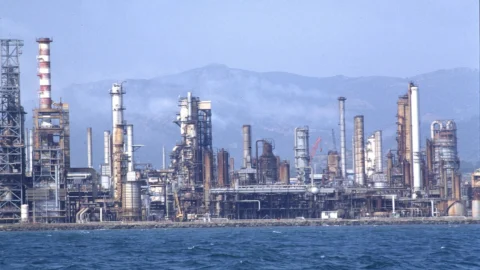It will not resolve the age-old question on the bank-foundation relationship, but the new composition of the Palazzo Sansedoni guidance body marks at least formally a moment of discontinuity with the past, putting an end to the era of Gabriello Mancini, the president of the Foundation who succeeded him Giuseppe Mussari when he became head of the bank (whose appointments, Mancini himself declared in interrogations on the MPS scandal, passed through local and national politics). The political soul of the Foundation's appointments in fact fell for the first time to half of the members of the steering body, as established by the new statute renewed after ten years. In fact, out of 14 members (two less than previously) it foresees that a total of seven will come from the mayor, the province and the region. The other nominations arrive from Chamber of Commerce of Siena, the Athenaeum University, the Sienese Archdiocese, the University for foreigners, the Voluntary Service Council, the Cnr and the Superior Council for Cultural Heritage.
A rebalancing of weights that removes a thorn in Siena's side and which had made Giuseppe Guzzetti, dominus of the Foundations at the top of Acri, cry out for illegitimacy, who did his utmost to defend the goodness of the banking foundation system: "The Montepaschi Foundation is the only which has an illegitimate statute, has violated the Ciampi Law”, i.e. the rule according to which it is necessary to equalize the weight between local administrators of political origin and civil society.
The attack on the Foundation system in those days had come from none other than the Financial Times which from abroad saw the scandalous circle of hell in Siena as the most evident symptom of the risks of leaving politicians in the banks: "the scandal reiterates the risks of leaving politicians in the banks”, noted the FT, defining the order which also affects other Italian banks as “Byzantine”, invoking the need to break the ties between managers and politicians.
There would be much to comment on the Byzantine rules for assigning seats to the top management of Foundations, entities in this way essentially self-referential with very strong power in their hands which, it must be said, also played the crucial role of long-term investors in the crisis, making up for the Italian shortage of large pension funds.
The problem is that in Siena, the issue was even more tangled and the "system" finally brought the bank to its knees. And even when the cap was blown, with the explosion of the investigations into the acquisition of Antonveneta and the Alexandria & co derivatives, it was always the politically-sponsored Foundation that appointed the six directors called to restore order in Rocca Salimbeni, including Alessandro Profumo and Fabrizio Viola. However, the new management has set a course of discontinuity by launching an aggressive industrial plan, bringing home the go-ahead for a capital increase that will further reduce the foundation in the capital of Mps and by blowing up the 4% shareholding ceiling (also supported from the Treasury).
Today, with the new statute, the new general deputation drops to 14 members (two fewer) and is made up of: Egidio Bianchi, Sergio Betti, Barbara Lazzeroni, Alessandra Navarri (appointed by the Municipality of Siena); Vincenzo Cesarini, Simonetta Sancasciani (Province of Siena); Amedeo Alpi (Tuscany Region); Carlo Guiggiani (Chamber of Commerce, Industry, Crafts and Agriculture of Siena); Bettina Campedelli (University of Siena); Alessandro Grifoni (Archdiocese of Siena – Colle Val d'Elsa – Montalcino); Riccardo Campa (University for Foreigners of Siena); Vareno Cucini (Provincial Council of Volunteering of Siena); Sergio Daolio (National Research Council - Cnr); and the former Minister of Cultural Heritage Antonio Paolucci (Superior Council for Cultural and Landscape Heritage).
By the beginning of next week, the new governing body, which will remain in office until 2017, will have to meet to appoint the members of the restricted body (the managing deputation, i.e. the board, made up of five people) and the president. In pole position is Francesco Maria Pizzetti, Piedmontese, 67 years old, jurist of international renown but also in the past legal adviser to Romano Prodi and Franco Bassanini. Names that the secretary of the municipal union of the Pd Alessandro Mugnaioli did not like. "Get used to independence", substantially replied the new mayor of Siena, the Renziano, Bruno Valentini, MPS banker on leave (he was in charge of credit lines, 37 years of work in the bank). Just Valentini had in the first instance directly asked the former president of Cosiglio Romani Prodi to become the new president.
Will the new balances and new names be able to restore credibility to the Sienese institution (+2,59% on the Stock Exchange in the meantime)? And above all, will they convince the Brussels bureaucrats? The letter sent to the Treasury in mid-July by the European Antitrust can be interpreted as a sign of the growing intolerance in Europe of the political-party mechanisms of everything changes and nothing changes.
In the letter, the Antitrust says it is concerned about the institution's ability to be self-sufficient and indicates itself the need for improvements in the plan presented by the Profumo-Viola ticket to confirm the green light for the Monti bonds: cost reduction and profitability ratio, remuneration on subordinated and hybrid debt securities, provisioning policies, manager remuneration policies, size trading activity, exposure and overall sovereign sensitivity.
Prime Minister Enrico Letta, the Treasury Minister Fabrizio Saccomanni and the governor Ignazio Visco have teamed up: the EU rejection in the opinion of the Government and of Via Nazionale would not be correct, at least according to what was leaked by a source from Palazzo Chigi, because the 4 billion of Tremonti bonds must be considered as interest-bearing financing and not state aid. In other words, it is not possible to assimilate Mps to other restructuring operations that have taken place in Europe.
Codacons entered the matter with a straight leg, calling for the immediate resignation of Economy Minister Saccomanni. The association has sent a complaint to the Public Prosecutor of Siena against the Minister of Economy Fabrizio Saccomanni, "in which the judiciary is asked to ascertain the actions of the Minister in relation to the MPS affair", which, "in the event that is not promptly remedied, it risks undermining the trust of our European partners in the country with incalculable damage to our public finances". At the basis of the complaint and the appeal "the work of the minister in relation to the MPS scandal and the information given on the matter to the European Union", in particular according to the association "the untruthful representations to the European Commission in the aid procedure of State of MPS”.





